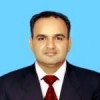The day is November 30, 1967: Zulfikar Ali Bhutto and his trusted colleagues are present at the residence of Dr Mubasher Hasan in Lahore, negotiations are ongoing in the context of president Ayub’s dictatorship. During this meeting, an historic decision is taken: to found a new political party called the Pakistan People’s Party.
On that occasion, Bhutto also raised the popular slogan of ‘roti, kapra aur makan’ and declared the people as the actual source of power.
The three-colour party flag designed by him reflects a diverse, tolerant and inclusive Pakistani society. Under Bhutto’s leadership, the PPP vowed to struggle for moderation, democracy and basic necessities for the poor.
In this regard, the party prepared a revolutionary manifesto that called for Pakistan to be declared a welfare state – a state where everyone has equal opportunities to progress and prosper.
Bhutto showed the dream of socio-economic uplift to the underprivileged during his public awareness rallies. He assured ordinary people of the protection of their civil rights and made the people aware about developments in the region. During the first general elections held after three years in 1970, the PPP was blessed with a historic victory to implement the election manifesto in the public interest, but the unfortunate separation of East Pakistan resulted in demoralizing the entire nation.
When Bhutto came to power, Pakistan was passing through a critical stage. However, being the first elected prime minister, he overcame all challenges on both the internal and foreign fronts successfully. During his tenure, not only did 90,000 prisoners of war return home but 5,139 square miles of occupied territory was also recovered under the Simla Accord.
Bhutto founded the nuclear programme with a strong determination. He faced bitter circumstances bravely but didn’t compromise on national security. Time has proved that, because of Bhutto’s political vision and right decision at the right time, our national defence is unconquerable today. He laid the foundation of an independent foreign policy and successfully presented Pakistan’s position to the international community including the UN Security Council.
The drafting of Pakistan’s first-ever consensus constitution in 1973 is yet another major achievement of Bhutto. The constitution is parliamentary in nature, and ensures a free and independent judiciary. For equal representation of all units, the Senate was introduced as the upper house of parliament.
Bhutto gave every Pakistani citizen the right to hold a passport, and millions of Pakistanis were allowed to seek job opportunities internationally. Bhutto’s contributions for the people of all sections of society are endless, especially provision of employment opportunities to non-Muslim minorities in national institutions.
Following his ouster and subsequent imprisonment, he wrote his final testament in prison in the form of a book titled ‘If I Am Assassinated’, exposing all the bitter realities due to which the great leader of history had to depart so soon.
After his sad demise, the late Mohtarma Benazir Bhutto carried forward the mission of her great father. She sacrificed her life for the sake of the people and always remembered her father’s advice till her last breath: that while Paradise is under mother’s feet, the worldly paradise of politics is under the feet of the people and that the politics of a good politician must revolve around serving the people.
Today her spouse, Asif Ali Zardari, has the status of the king of the politics of reconciliation, who has introduced a positive trend of forgiving opponents in the best interest of Pakistan.
As the PPP celebrates its 56th foundation day, I believe that Bhutto is not the name of a person, but an ideology, and ideology never dies. This is why Bhutto’s party, even after almost half a century, still enjoys a unique status in the country’s political arena.
In my view, after Quaid-e-Azam, if any political figure has had an indelible impact on the country and the nation, it is Zulfikar Ali Bhutto, the founder of the PPP.
The writer is a former member of the National Assembly and patron-in-chief of the Pakistan Hindu Council. He tweets/posts @RVankwani
Unbreakable leader
 33
33
 6
01.12.2023
6
01.12.2023
The day is November 30, 1967: Zulfikar Ali Bhutto and his trusted colleagues are present at the residence of Dr Mubasher Hasan in Lahore, negotiations are ongoing in the context of president Ayub’s dictatorship. During this meeting, an historic decision is taken: to found a new political party called the Pakistan People’s Party.
On that occasion, Bhutto also raised the popular slogan of ‘roti, kapra aur makan’ and declared the people as the actual source of power.
The three-colour party flag designed by him reflects a diverse, tolerant and inclusive Pakistani society. Under Bhutto’s leadership, the PPP vowed to struggle for moderation, democracy and basic necessities for the poor.
In this regard, the party prepared a revolutionary manifesto that called for Pakistan to be declared a welfare state – a state where everyone has equal opportunities to progress and prosper.
Bhutto showed the dream of socio-economic uplift to the underprivileged during his public awareness rallies. He assured ordinary people of the protection of their civil........
© The News International
 visit website
visit website






















 Toi Staff
Toi Staff Gideon Levy
Gideon Levy Belen Fernandez
Belen Fernandez Andrew Mitrovica
Andrew Mitrovica Mort Laitner
Mort Laitner Nikkei Editorial
Nikkei Editorial Ali Fathollah-Nejad
Ali Fathollah-Nejad Rami G Khouri
Rami G Khouri
